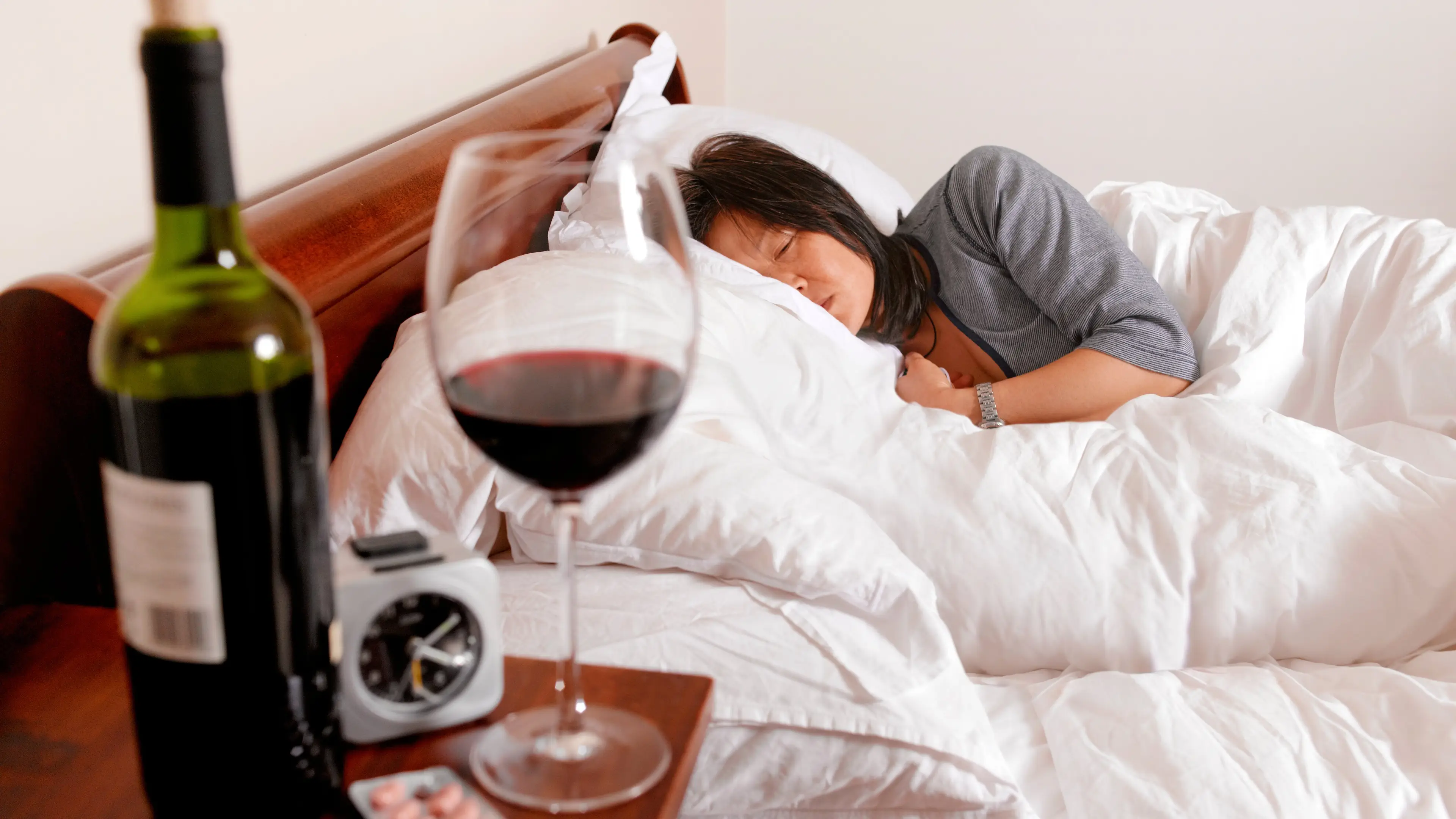
While many believe a night cap is the best remedy for insomnia, experts have explained why we should potentially steer clear of wine before bed.
It's well known that a glass of wine or two before bed will help to wind down for the evening - but is it actually the recipe for a good night's sleep?
We're all too familiar with the feeling of complete regret the morning after drinking a little too much, often not remembering how or when we fell asleep.
And while it might feel like we've been completely knock-out for the entire night, experts have suggested that alcohol might not actually be contributing to as good a night's sleep as it's perceived.
Advert
While a glass of wine might help you get to sleep, studies suggests that it might not be as useful for staying asleep.
Speaking to Delish, a number of doctors noted that red wine can be especially bad.

Dr Andrew Colsky, a specialist in sleep, noted that while wine can help you fall asleep quicker, the quality of the sleep is actually far from what is needed to wake up feeling refreshed.
He said: "It helps you fall asleep quickly because it enhances GABA activity, which calms brain activity and induces drowsiness."
However, the expert added that wine can actually 'disrupt your sleep quality', despite speeding up the process.
"Once you fall asleep, and your body starts to metabolize alcohol, all of the negative effects begin," he noted.
Wine and other alcohol can also affect REM (rapid eye movement) sleep, which we know contributes hugely to memory consolidation, emotional processing, and the overall functioning of the brain.

The doctor added: "Additionally, as the alcohol is processed in your system, it can lead to frequent awakenings in the evening, increased night sweats, and since it is a diuretic, more trips to the bathroom."
The expert noted that alcohol likely relaxes the muscles in the throat, sometimes leading to snoring and sleep apnea after periods of heavy consumption.
Dr Madaiah Revana noted how histamines, especially in red wine, can cause drowsiness, which means you might be more likely to drop off quicker or earlier than usual - only to have a disrupted night in the long run.
But if you happen to enjoy a glass of wine before bed, and would like to continue to without the negative effects, there are things you can do.
Revana recommends stopping the consumption of wine three to four hours before you plan on going to bed, which allows time for the body to metabolise, while protecting REM.
He also advised against mixing alcohol with sedatives or medications, to make sure you consume wine on a full stomach, and have it in moderation.
This generally means to stop drinking after one or two glasses per day.
Topics: Alcohol
